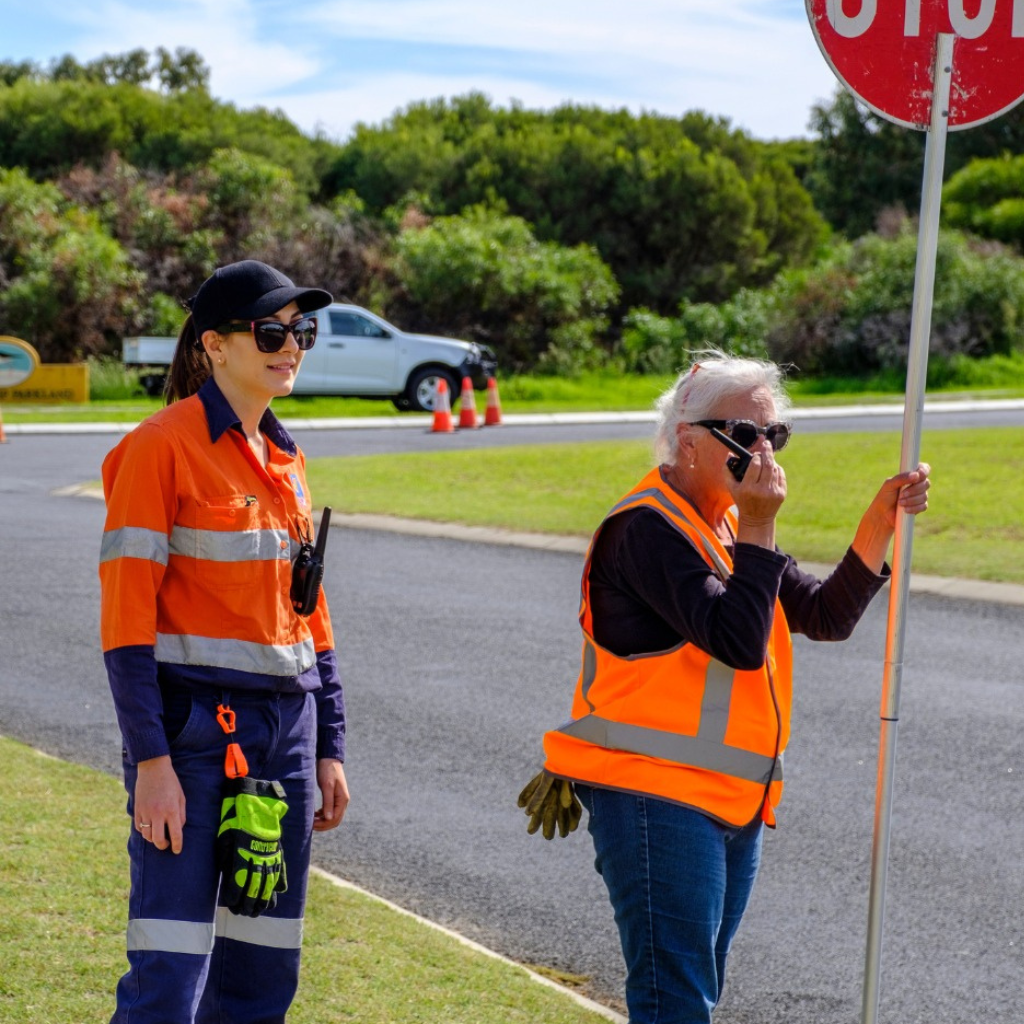Congratulations! You have successfully completed your Basic Worksite Traffic Management and Traffic Controller (BWTM & TC) training, secured yourself a role as a Traffic Controller, now you’re on the road to starting your career in the traffic management industry (pun intended)
Starting a new role in any industry is nerve racking, that’s where we are here to help. Let us take you through some key tips and cover what to expect in your first days and weeks as a qualified traffic controller.
Getting started (and helpful tips) …
- Look for reputable companies that are established in the industry (if are you newly accredited and looking for work, be sure to check out our Job Board).
- Use the right personal protective equipment (PPE) and clothing to be ready for any weather you might face during the day. In one shift, you may experience rain and sunshine – so always come to work each shift prepared for all weather conditions.
- The majority of traffic controller roles commence as casual engagement, and shifts vary week to week. Be readily contactable and available to accept work shifts which will demonstrate your flexibility and likelihood of receiving more! Try to be flexible to show that you are willing to work.
- Always pack plenty of provisions (food and water!) than you think you’ll need – if the job hits problems, you might be there a bit longer than expected. Don’t rely on stopping in at a local deli or shops to buy food, as you may be working in an area with nothing close by.
- Stay alert, be ready to act and move quickly. Road users are unpredictable therefore you need to ensure you position yourselves in a safe area at all times.
- Arrive early at work. Being late to a job will not only frustrate your employer, but also just as importantly your client and cause work delays and unnecessary costs. Remember: one late traffic controller can stop dozens of tradesmen and construction workers from commencing, so it’s important that you always allow plenty of time to get to your site.
- Stay ahead of industry updates and changes. After completing your Main Roads WA BWTM/TC accreditation, it doesn’t just stop there. There are regular legislation updates that will occur, so be sure to stay across these such as subscribing to our newsletter.
- Keep up to date: Traffic Management accreditations need to be kept current; you need to undergo a traffic control refresher course every three years.
What to expect…
Thinking about choosing a career as a Traffic Controller because you get to sit around all day? ????? ?????…
You might not know this, but Traffic Controllers are some of the most essential personnel on roadworks sites.
What exactly does a Traffic Controller do?
They direct the flow of vehicles, machinery and other road users on roads. Working in this role involves more than just holding a stop/slow bat. Common tasks and responsibilities for a Traffic Controller include;
? Undertake site and risk assessments
? Setting up traffic management signs and devices
? Directing traffic and road users
? Applying and monitoring safety and traffic management plans
? Moving or packing down signs and devices
? Inspecting and cleaning signs and equipment
What other common duties and tasks can I expect to perform as a traffic controller when I start work?
- Connecting and placing trailers
- Raising lighting towers
- Set up of Portable Traffic Control Devices
- Closing Lanes
- Pedestrian Management
- Cyclist Management
- Implementing signs and devices
- Updating worksite records
- Monitoring two-way communications
- Lookout person for workers
Learn the lingo!
When you’re just starting out in the temporary traffic management industry, understanding all the traffic management abbreviations can become tricky (and confusing!). We’ve compiled a quick (and easy) guide to understanding the lingo and common traffic management abbreviations that will help you during those first few weeks to ensure you know what your colleagues are trying to convey [learn the lingo here].
Keep up to date and stay connected…
We hope this article is useful and you have a fantastic first few weeks in your new role!
We’re continually aiming to keep industry up to date with all key changes and updates, so be sure to subscribe to keep up to date.




